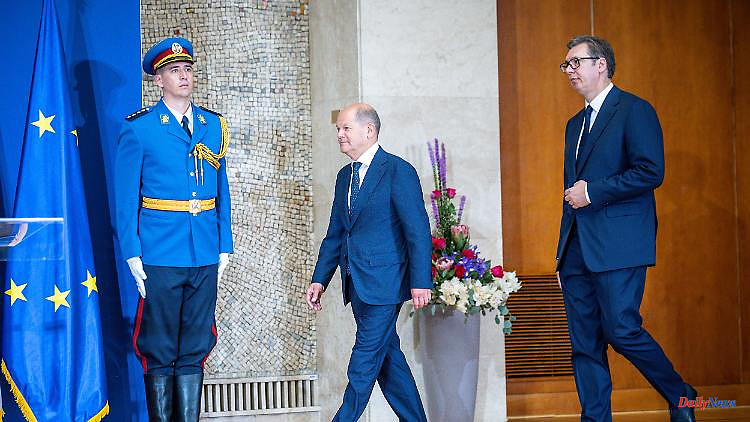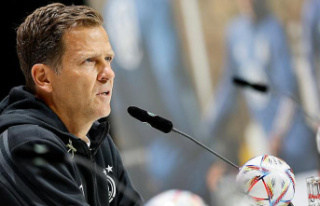Scholz's trip to the Balkans led him into a diplomatic minefield. When talking to the Serbian President, there is a tremendous crunch. Vucic accuses the chancellor of threatening Belgrade. He reacts calmly. More uncomfortable conflicts await on Saturday.
Chancellor Olaf Scholz caused outrage in Belgrade with statements about the recognition of Kosovo. "So you can understand: We don't react to pressure in this way, where someone threatens us and then you have to do something," said Serbian President Aleksandar Vucic after meeting Scholz in Belgrade. From the EU he "heard for the first time today that mutual recognition is required".
During his visit to Pristina in the morning, Scholz said about the efforts of Kosovo and Serbia to join the EU: "An agreement must ultimately also clarify the issue of recognizing Kosovo; because it is inconceivable that two countries that mutually not recognise, become members of the EU." Scholz reacted calmly to Vucic's outrage in the joint press conference with the Serbian President. He said "something that is obvious. Maybe that will help."
Serbia, which regards Kosovo as a breakaway province, "also wants territorial integrity" like Ukraine, Vucic said. "Nevertheless, we are ready to talk about compromise solutions." Serbia "never gave up the dialogue". "If you think you have to threaten us... we don't mind. Do your job, we'll do ours." Scholz emphasized that his goal was for the Western Balkan countries to succeed. "Not just in the very distant future, but as soon as possible." It would be "very good if this is pushed forward with great courage". The conflict between Serbia and Kosovo has not been resolved for years and is hampering the prospects of both Balkan countries joining the EU. The government in Belgrade does not recognize the former southern Serbian province of Kosovo as an independent state.
Scholz concludes his trip to the Balkans with visits to North Macedonia and Bulgaria on Saturday. He will arrive at the airport in the North Macedonian capital of Skopje in the morning and will then meet with Prime Minister Dimitar Kovacevski. The main topic is the country's EU accession process, which has been blocked by Bulgaria. The government in Sofia demands that North Macedonia first recognize Bulgarian roots in its language, population and history.
Scholz is then expected in the Bulgarian capital in the afternoon, where a meeting with Prime Minister Kiril Petkov is planned. The chancellor had announced that he wanted to work towards a realistic EU perspective for the western Balkan states. Some of them have been accession candidates for many years without making any progress. The background to the visit is Russia's attempts to expand its traditionally strong influence in the region of former Yugoslavia.












